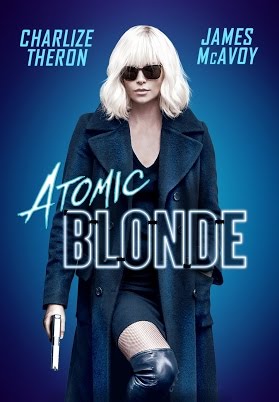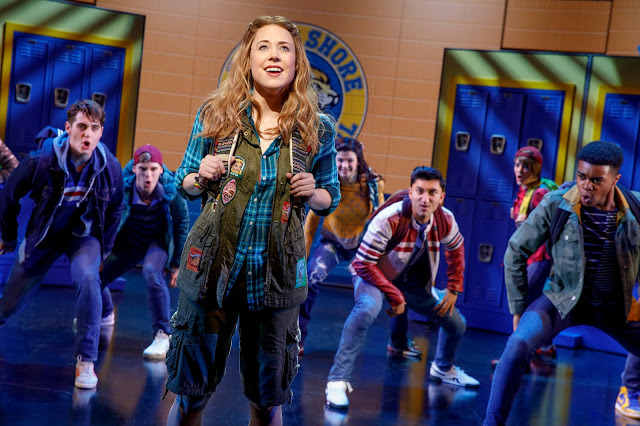ELAINE MAY TRIUMPHS IN 'THE WAVERLY GALLERY'
 Tuesday, October 30, 2018 at 2:11PM
Tuesday, October 30, 2018 at 2:11PM
 Elaine May
Elaine May
HENRY EDWARDS - NEW YORK - October 30, 2018
Talk about surprises!
The news that the notoriously brilliant and rarely if ever seen Elaine May was returning to Broadway for the first time in more than 50 years in Kenneth Lonergan’s “The Waverly Gallery” triggered monumental disbelief.
Check out the liner notes to peerless comedy duo Nichols and May’s 1959 album, “Improvisations to Music,” and you will discover May’s famously terse bio: “Miss May does not exist.”
Not much has changed since then. The illustrious writer-screenwriter-film director-actress-comedienne was - is and seemingly will always be - elusive and reclusive.
Yet unimaginably as it may seem, at the age of 86, the legendary outlier has chosen to perform on Broadway for the second time in a career of 62 years.
May’s sole appearance on the Great White Way occurred in 1960 when then-comedy partner Mike Nichols and she brought “An Evening with Mike Nichols and Elaine May” to the John Golden Theatre for an antic 306 performances. (Coincidentally, the Golden currently houses “The Waverly Gallery.”)
Nichols and May were hailed as the freshest, most inventive, and most influential social satirists of their day. And they were!
A year later, despite famous and popularity, the independent, headstrong - and perhaps heedless - duo terminated an astonishingly successful four-year partnership.
Countless comedians since then have been influenced by the bite and sophistication of their comedic inventiveness.
Nichols went on to become, as a director, a colossus of the stage and screen, earning nine Tony awards along the way; as a performer, writer, and director, May created her own idiosyncratic and indelible body of work while (no surprise there) largely staying out of the public eye.
May wrote seven screenplays, including the Oscar-nominated “Heaven Can Wait” and “Primary Colors”; wrote and directed the offbeat movie comedies “A New Leaf,” “Mikey & Nicky,” “The Heartbreak Kid,” and fabled disaster “Ishtar” – May was the first woman since Ida Lupino in the 1950s to direct a studio film; and became one of Hollywood’s most prolific and respected uncredited script doctors (“Tootsie”, “Reds,” “Wolf”).
In the early 1950s, May studied acting with the Russian-born character actress and teacher Maria Ouspenskaya, one of the original members of Stanislavski’s company.
That May is Method trained and delivered stealthily funny performances in such films as “A New Leaf,” “Enter Laughing,” “California Suite,” and “Small Time Crooks” perhaps provides a clue to the genius of her performance in “The Waverly Galley.”
The character she portrays in Lonergan’s play, 85-year-old Gladys Green is a retired lawyer, old-time, rabble-rousing leftie, widow, mother and grandmother.
Gladys’s life revolves around the neighborhood art gallery she manages in a tiny rented space on Waverly Place in the West Village.
The octogenarian is also waging war against her descent into dementia.
Gladys has always been a great talker. Now misunderstandings, constant repetitions, confusions, bewilderment and fear-inducing dead silences punctuate her conversations. No matter what happens and despite a hearing aid that never cooperates, she ends each conversation with a broad smile in the hope it will smooth over the agonizing situation.
Lonergan’s play is a memory play based on the final years of his own grandmother.
The writer’s uncannily specific recollections issue forth from the mouth of Gladys’s grandson Daniel Reed (Lucas Hedges, nominated for an Oscar for his performance in Lonergan’s “Manchester by the Sea,” and making his Broadway debut).
Daniel is in his 20s, and a speechwriter for the EPA.
“This really happened to her,” he tells the audience, “and it seems like somebody should remember it.”
His recollections trace Gladys’s step-by-step descent as she loses her grip on reality and her sense of self fades to nothing.
At the same time, Daniel characterizes the overwhelming confusion and wrenching desperation overtakes his family of “liberal Upper West Side atheistic Jewish intellectuals” as Gladys worsens.
Her decline and the dread that accompanies it threatens the sanity of his exhausted mother (Joan Allen), stepfather Howard Fine (David Cromer) and visiting artist Don Bowman (Michael Cera), transforming their everyday lives into waking nightmares.
“The Waverly Gallery” received its original production Off-Broadway in 2001 and was nominated for a Pulitzer Prize.
Despite the pain of revisiting the story, playwright Lonergan is thrilled to see his effort finally make its Broadway bow nearly 20 years after its Off Broadway premiere.
“In a funny way, it was nice to see my family again, as they were then, and it was nice to see my grandmother again, in a way. But that was a rough time. The material is very difficult for me and for anyone who’s been through anything like what the characters in the play are going through,” says the Oscar-winning writer and director of the searing 2016 film “Manchester by the Sea.”
Last year, Lonergan’s 2001 Off Broadway success, “Lobby Hero,” also made the move to the Main Stem, where it had the privilege of inaugurating Second Stage’s Broadway home, the renovated Helen Hayes Theatre and received a nomination for the Tony Award for Best Revival of a Play.
Both endeavors are highly realistic, emphasize character and situation over plot and display Lonergan’s devotion to the accurate representation of the language and experience of his characters.
And there is plenty of poignancy in the writing.
“The Waverly Gallery” arrives on Broadway with director Lila Neugebauer making her Main Stem debut.
It’s been my point of the view that the director’s Off Broadway record has been spotty.
I was not a fan of her treatment of the Edward Albee classic, “The Zoo Story,” Tracey Letts’s “Mary Page Marlowe” or Lily Thorne’s deadly “Peace for Mary Frances”; on the other hand, Neugebauer’s staging of Sarah DeLappe’s uncompromising take on a teenage girls soccer team, “The Wolves,” was undiluted perfection.
And so is her direction of “The Waverly Gallery.”
From the outset that Gladys is doomed is no secret and the audience is there to pay witness the chronicle of chronicle of a witness the progression of her breakdown that is recalled with seeming tape recorder specificity.
It is a tragic situation and one that must never be perceived as maudlin and a tearjerker.
Thankfully, Neugebauer and her cast have the great good sense never to overplay their hands or resort to sentimentality.
And May's remarkably detailed, yet extraordinarily subtle performance is gently overpowering. She is sweet and helpless, always smart and a fighter at war with her loss of memory and comprehension. What winds up being left is merely the essence of what once was and even that is fading.
Lucas Hedges’s Daniel, lives in the same Greenwich Village building as his grandmother and Gladys rings his doorbell three times a night in succession, crying out in a deepening state of confusion and despair unable to remember what he does for a living or where she put her keys or sometimes even who he is.
May and Hedges prove to be exquisite scene partners with wondrous timing, so funny and so awfully sad all at the same time.
 Lucas Hedges
Lucas Hedges
Joan Allen’s Ellen does everything she can to cope with her mother, before exploding in a fit of heartbreaking rage. At every turn, her performance radiates heartfelt humanity.
David Cromer (yes, the brilliant director of “Our Town” and “The Band’s Visit”) is perfect as the insensitive psychoanalyst who gets caught up in an exasperating dialogue with Gladys.
Michael Cera, a veteran of Lonergan’s “This Is Our Youth” and “Lobby Hero,” generates enormous laughter when the out-of-towner’s car is vandalized and he squawks: “I gotta admit I’m very, very discouraged by this city.”
David Zinn's designs bring to life Ellen’s West Side apartment, Gladys’s Village apartment, and her miniscule Waverly Place gallery.
Tal Yarden's vintage films of New York street life in decades past are projected on a big gray wall that descends in front of the set during each scene change.
“I tried to get the details right,” says Cera’s Don, “because that’s what you remember when you think about something, so I tried like hell to get them the way they are.”
“The Waverly Gallery” is a theatrical gem that captures the details with noteworthy perfection.
There is no way it will not bring tears to your eyes.
Talk about surprises! Here is one for the record books!
 Michael Cera, Lucas Hedges, Elaine May
Michael Cera, Lucas Hedges, Elaine May




















